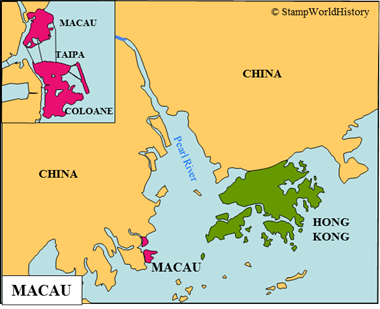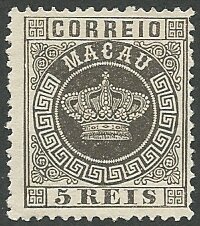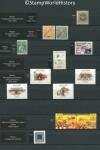澳門
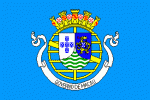
Macau
Portuguese possession
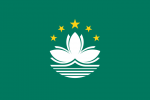
Macau
SAR China
Quick reference
General issues: Portuguese leased territory 1884-1887, Portuguese colony 1887-1951, Portuguese province 1951-1975, Portuguese possession with self government 1976-1999, Special administrative region China 1999-Present
Country name on general issues: Macau
Currency: 1 Milreis = 1000 Reis 1884-1894, 1 Rupee = 78 Avos 1894-1913, 1 Pataca = 100 Avos 1913-Present
Population: 64 000 in 1900, 566 000 in 2013
Political history Macau
Macau – in current pinyin called Aomen – is located in China, eastern Asia, on the Pearl River across from Hong Kong. The Portuguese settled in Macau in the 16th century and have, for centuries, leased Macau from China. In 1849, the Portuguese unilaterally end the lease agreement. The Taipa and Coloane areas are annexed to Macau in 1851 and 1864 respectively and Macau, in 1887, formally becomes a Portuguese colony.
In WWII – Portugal being neutral – Macau is not occupied by Japan, unlike Hong Kong and the surrounding Chinese province of Guangdong. When, in 1951, the Portuguese colonial empire is reorganized, Macau – like the other colonies – becomes a Portuguese province. When Portugal withdraws from its other colonies after the Carnation Revolution, Macau remains Portuguese, but in 1975 gains a large amount of self government. In 1999, Macau is transferred to China to become a special administrative region. Like Hong Kong, Macau, as part of the ‘one country, two systems’ policy, has a certain amount of self government in China. The Macau economy is based on tourism and gambling which have made the enclave a wealthy one – Macau has the highest per capita purchasing power in the world.
Postal history Macau
In Macau, from 1863 until 1884, the postal services are run by a branch of the Hong Kong postal services. The first stamps for Macau are issued in 1884. As a Portuguese possession, Macau issues stamps until the transfer to China in 1999. As a special administrative region in China, Macau has continued to issue stamps until the present day.
Album pages
← Previous page: LebanonNext page: Malaysia →

